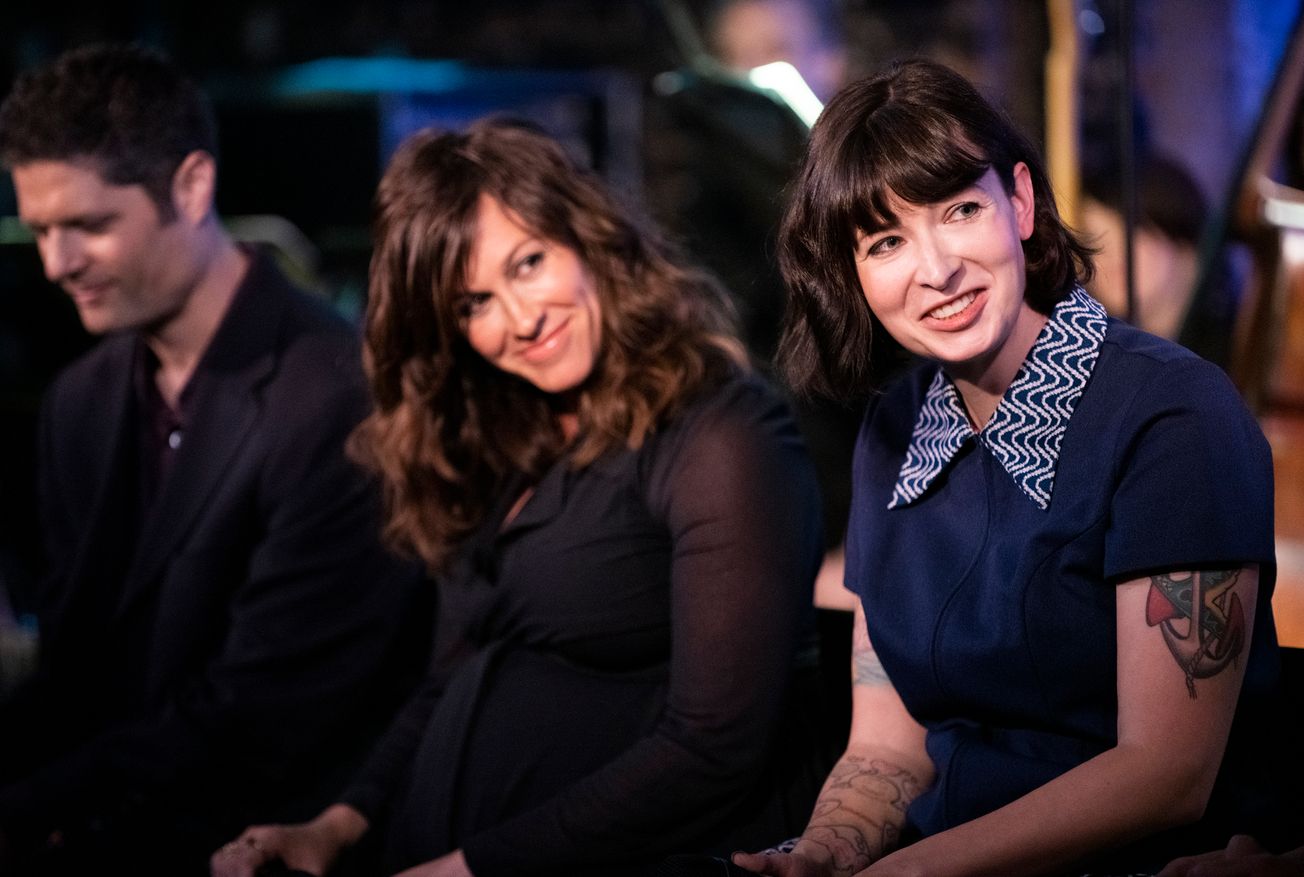Diablo Cody had become comfortable in Hollywood.
The screenwriter’s debut film “Juno” had won an Academy Award for Best Original Screenplay; Cody had created and helmed the television series “United States of Tara” and her other films, “Jennifer’s Body” and “Young Adult,” had developed into cult hits. But with that success came the desire to challenge herself with something new.
And so when presented with the opportunity to write the book for the “Jagged Little Pill” musical, with the stipulation that it be an original story, not an Alanis Morissette biography, Cody jumped at the chance.
“In theater, I had to start from scratch,” Cody said.
What resulted was a wide-ranging musical in which Cody sought to push the boundaries of the genre by tackling issues such as sexual assault, opioid addiction and gender expression. In turn, as the show evolved from workshop to Boston to Broadway, live theater gained a new convert.
Cody came onto the project in November 2016 at the suggestion of orchestrator Tom Kitt, who had worked with her on a shelved film adaptation of “Sweet Valley High.” Kitt believed the production needed her unique voice and ability to create layered characters in order to take on Morrisette’s iconic songs.
“Each [song] is this special creation and a real kind of musical force,” Kitt said. “You want someone who’s really going to be able to meet that head on and also take it and run with it.”
Before writing, Cody brushed up on some musical theater dramaturgy, reading scripts and watching the jukebox musicals she could get her hands on. (She cites “Mamma Mia!” as one of the most imaginative book-to-music pairings she found). But as a newcomer to the genre, she wanted to maintain some of that naiveté .
“Part of me wanted to go into it ignorant because I thought maybe I’ll come up with something different if I’m not locked into a formula,” Cody said.
So she let Morissette’s album be her guide. Listening to “Jagged Little Pill” — an album she had worn out in her high school Ford Escort — Cody saw the character of Mary Jane, an image-conscious Connecticut mother, emerge from Morissette’s eponymous song. She built a family around her, pairing Mary Jane with overworked husband Steve. Daughter Frankie, a writer, came out of the song “Ironic” and a joking, classroom dissection of its meaning, while stressed-out son Nick evolved from the song “Perfect.”
With the family came an array of issues, including sexual assault and rape culture, gender expression, opioid addiction, gun violence and climate change. These topics were chosen specifically, as Cody drew on events that were surfacing in the real world and others that had affected her own family. Her goal was to make a political statement with the piece, after a personal history of being apolitical.
“Writing this show was an act of activism for me,” she said. ”I might not be out there canvassing, but I wrote this show and I believe everything in it.”
That includes sticking to her guns when met with the criticism that the musical takes on too many issues: “To me, it is an accurate reflection of the world,” she said.
Getting to Broadway involved an early developmental workshop of the musical in June 2017 (with Idina Menzel playing Mary Jane).This morphed into a work session at Morissette’s Malibu, Calif. home, led by Morissette, in which the creative team talked about their own families and trauma in order to deepen the relationships in the book. In May 2018, the show had its world premiere at A.R.T., where it played a three-month run, before staging another workshop and then beginning previews on Broadway.
All of this has felt like a luxury to Cody, who relished the ability to keep iterating on a project — even as she nervously paced the back of the theater in Boston — unlike in the film world where even reshoots are looked down upon.
“This is the exact opposite where you’re encouraged to constantly be changing it and there’s no stigma to it,” she said. “I love it. I mean, we have dramatic changes this morning and the show is on Broadway.”
So far, changes have included adding more scenes and dialogue for Nick, including moving his song, “Perfect,” to Act 1, and making his friend, Bella, more of a three-dimensional character, in pursuit of creating a more cohesive storyline. Many of the tweaks have come from Cody herself, but she has also relied on notes from director Diane Paulus and from fellow writers when she finds herself getting too close to the project to be objective.
“I feel like I’ve painted something and my nose is on the canvas,” Cody said. “So I need somebody who’s standing 10 feet away to tell me how it looks.”
While the book has changed, producer Eva Price said it has maintained Cody’s “killer voice” as well as its heartfelt moments, thanks to Cody’s deep understanding of her characters.
“Her DNA is in the soul of this musical,” Price said.
In early November, Cody was still pacing, this time in the back of the Broadhurst Theatre as the cast began Broadway previews. Some of the nervousness is still there, but she’s grown more comfortable with musical theater and gained a deep love of working in the genre.
She plans to fly home to L.A. immediately following opening night to spend time with her family. But after that, she’s looking for an opportunity to test her creative impulses again.
“I would like to do an original musical where I work with the composer, because I love it,” Cody said. “I’m like Broadway or bust, man.”


























































